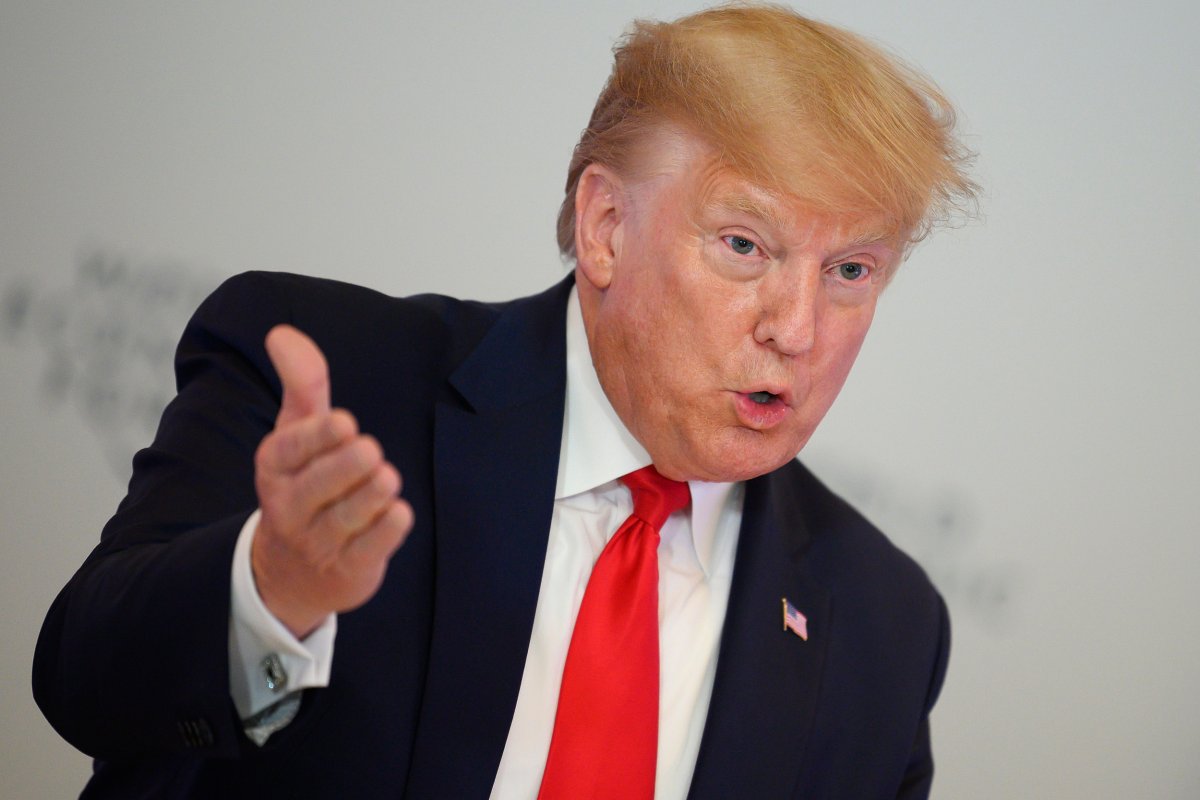Nearly four years after then-presidential candidate Donald Trump said he would eliminate the federal debt in eight years, the deficit has since risen by more than 16 percent under his presidency.
On Tuesday, attorney George Conway, a frequent Trump critic and husband of White House Special Counsel Kellyanne Conway, pointed out that three years into Trump's first term as president, the national debt increased by $3 trillion, bringing it to over $23 trillion now. Conway cited figures from the National Debt Tweets in his tweet.
In other news, yesterday was the third anniversary of @realDonaldTrump’s inauguration. In the three years he’s been president (during two of which his party controlled both houses of Congress) the national debt has increased by
— George Conway (@gtconway3d) January 22, 2020
$3,266,795,731,264.14. pic.twitter.com/U7HmdkAWIc
As a Republican presidential candidate, Trump said he would eliminate the national debt in eight years, which was $19 trillion in 2016, according to The Washington Post. Asked by journalist Bob Woodward if that would involving raising taxes to ease the problem, Trump responded: "I don't think I'll need to. The power is trade. Our deals are so bad."
But as of January, President Trump signed $4.7 trillion more into the debt until 2029, according to the Committee for a Responsible Federal Budget (CRFB).
At a private dinner with wealthy donors last Friday, just days before the third anniversary of his inauguration, the president brushed off critics amid concerns of his spending and growing national debt. "Who the hell cares about the budget? We're going to have a country," he said, as reported by The Washington Post.
The national debt has increased significantly under both the Bush and Obama administrations, increasing about 101 percent from the end of Clinton's administration to the end of Bush's. Republicans criticized Obama for doubling debt by nearly $9 trillion.
According to CRFB President Maya McGuineas, the deficit would have increased under Trump, even if he hadn't signed any legislation. But the new policies he signed beginning in 2017 reflect further spending, which is unusual during a period of economic growth.
"Just like the economic performance isn't totally attributable to the president, the existing policies that are baked into the cake don't reflect Trump's initiative," MacGuineas told Newsweek. "The laws he's signed, though, do. And in this case, he's signed into law two major tax cuts--the one that everybody notices."
The two pieces of legislation that added the most to the national debt are the Tax Cuts and Jobs Act (TCJA) and the 2018 and 2019 Bipartisan Budget Acts (BBA), according to CRFB. In addition to these, the ACA Tax Repeal and other legislation--which included disaster relief, emergency spending, and ACA tax delays, signed in December 2019--added a combined total of about $665 billion.
MacGuineas also said that laws Trump has signed have increased spending, without revenue increasing enough to maintain it, creating more debt than expected. "There were a number of increases that were already on track that came from our growing healthcare and retirement cost. But President Trump massively exacerbated that problem with the laws he signed, which included creating lower revenues and higher spending. And obviously, because of the laws of math, that means we're left with much larger borrowing," she said. "What's unusual is that during a period of economic expansion the borrowing would be increasing from year to year, but that's what's been happening under President Trump."
The increased spending elevated the deficit. The TCJA act has added $1.8 trillion to the debt and can add another trillion dollars, if tax cuts are extended past their 2025 expiration.
During his 2016 presidential campaign, Trump not only planned to eliminate the national debt, but also planned to balance the national budget and eliminate budget deficit. However, the increased spending with less income has kept deficits high. A Congressional Budget Office projection predicts $1 trillion deficits annually from 2020 to 2028.
"It's really unusual to be borrowing this much, when the economy is this strong. In fact, we've never had a deficit this large relative to GDP, when the economy was growing this strongly," MacGuineas said. "Deficits have their role, but at this point in the business cycle there is no need for the borrowing that we are undertaking."
Both BBAs added a total $2.2 trillion, mainly by increasing defense and non-defense spending caps through 2021.
When asked if there was anything that can be done to make improvements to the debt, MacGuineas said much can be done with political will. "We're going to need to raise revenues and slow the growth of spending," she said. " That can look like repealing the tax cut, higher tax rates, or new taxes like the carbon tax. It can look like making fixes to our retirement and healthcare system. It can put back in spending caps like we had on defense or domestic discretionary. Frankly the problem is so large that we need to be looking at all those areas. What it really takes is honesty and political will and leadership."

Uncommon Knowledge
Newsweek is committed to challenging conventional wisdom and finding connections in the search for common ground.
Newsweek is committed to challenging conventional wisdom and finding connections in the search for common ground.
About the writer
To read how Newsweek uses AI as a newsroom tool, Click here.








